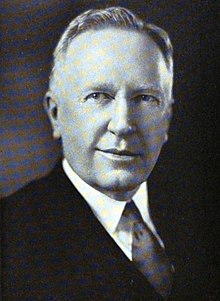
Jerry Summers
The life of Judge Samuel McReynolds, who presided over the Ed Johnson trial, demonstrates how political pressure and threat of mob violence can eliminate the phrase of an “independent judiciary” which today is defined as a “neutral and detached judiciary”.
Samuel Davis McReynolds was born on a farm near Pikeville in Bledsoe County on April 16, 1872. He attended local schools and Cumberland University at Lebanon, Tennessee and was licensed to practice law in 1893.
McReynolds originally practiced law in Pikeville and served as an assistant attorney from 1894-1896. He subsequently moved to Chattanooga in 1896 and in 1903 was appointed Criminal Court Judge. McReynolds’ term of office was ending and he was facing a re-election campaign in two months when the Ed Johnson case came up in February, 1906.
McReynolds succumbed to the ugly situation and made several unconstitutional decisions if we review his actions in light of present day constitutional guarantees, but were acceptable in the atmosphere existing in the South during this era of segregation.
He granted leading criminal lawyer Lewis Shepherd’s request to be appointed counsel for Johnson but also appointed two other lawyers who had never tried a criminal case. When Johnson was arrested Judge McReynolds performed a noble action of courage when he confronted the angry mob that was gathering at the jail to lynch Johnson.
The Judge faced the crowd and told them to “go home” and for a while this appeased the citizens trying to take the law into their own hands as was customary in the South during this era. From this point on McReynolds failed as a judicial officer in the high profile case because of his political ambition and upcoming re-election. Amongst the invalid steps he took were:
1) Scheduling a capital murder for trial nine days from date of arrest;
2) Failure to even consider a motion to take the case out of Chattanooga and informed the defense counsel that it would be summarily denied without a hearing;
3) Making numerous pro-prosecution statements and rulings in the trial;
4) Denying a new trial hearing because the appointed lawyers were one day late in filing it;
5) Sentencing Johnson to death and discouraging an appeal to the Tennessee Supreme Court
6) Refusing to notify Sheriff Shipp that a lynch mob was surrounding the jail to take the prisoner out and hang him;
When Shepherd and new African American attorneys Noah Paden and Styles Hutchins got a 10-day stay of execution after the trial and the United States Supreme Court Justice John Marshall Harlan granted a second stay, Judge McReynolds was appalled and took the action as a personal insult on him and the state court system.
After Johnson had been lynched on the Walnut Street Bridge and his body shot 50 times, McReynolds was easily re-elected two months later. He served two more terms of office.
After Sheriff Shipp and several others were cited by the United States Supreme Court for contempt of aiding and abetting the lynch mob, McReynolds only narrowly escaped being tried for contempt himself.
McReynolds remained a popular judicial officer in Hamilton County and, upon the unexpected death of former Congressman John A. Moon in 1921, McReynolds became the Democratic candidate for Congress from the Third District and defeated the Republican candidate in the general election. He became one of the most powerful members of Congress.
McReynolds became chairman of the House Foreign Affairs Committee and in that capacity steered President Franklin Roosevelt’s legislation through Congress. Roosevelt counted on McReynolds to work out compromises with the isolationists in Congress.
McReynolds' political ambition got thwarted on two occasions when Cordell Hull’s Senate became vacant when he became Secretary of State, and the Congressman sought the position, but it went to fellow Chattanoogan Nathan Bachman. When Senator Bachman died suddenly in 1937 McReynolds once again sought the appointment, but Governor Gordon Browning appointed relatively unknown labor leader George Berry to the position.
McReynolds was re-elected in 1938 by easily beating Chattanooga Judge L.D. Miller, Sr.
Bad health probably caused McReynolds not to run for the Senate in 1938. He suffered from heart disease and ultimately died in Washington on July 11, 1939 from an attack. He was succeeded in office by Estes Kefauver.
President Roosevelt “wrote a personal letter praising McReynolds for his fine personal qualities and public service.”
It is doubted that any of Ed Johnson’s family concurred in the salutations and favorable compliments towards Congressman Reynolds.
* * *
Jerry Summers
(If you have additional information about one of Mr. Summers' articles or have suggestions or ideas about a future Chattanooga area historical piece, please contact Mr. Summers at jsummers@summersfirm.com

Sam McReynolds